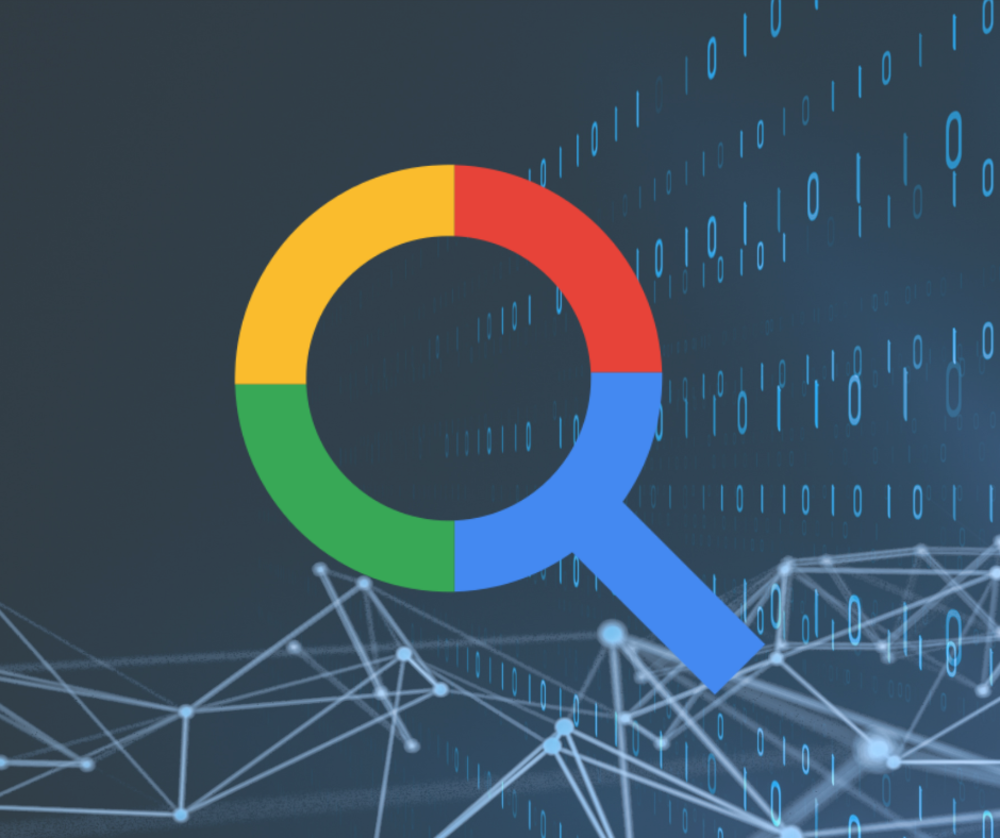Have you ever wondered how Google manages to process billions of search queries each day and still present the most relevant results almost instantly? Behind every search you conduct lies a powerful web of technologies, now powered by emerging AI advancements, that continually shape and refine the information you see. As 2025 unfolds, a major transformation is underway: Google Search is taking a leap from keyword matching and link-based rankings to dynamic, AI-driven SERPs. For local business and franchise owners, understanding these AI search innovations means the difference between staying visible online and falling behind the competition.
Picture a world where search results are not simply a list of blue links. Instead, every query is interpreted by advanced AI agents, drawing from structured data and user intent to organize information into meaningful clusters. This is no longer science fiction, it’s today’s reality. With over 1,200 live experiments powering the shift, Google’s new Web Guide (accessible via Search Labs) is redesigning how users interact with complex or open-ended queries. Through AI-driven topic clustering, entity recognition, and contextual query expansion, Google’s AI layers are turning traditional SEO strategies upside down.
For digital marketers and local business owners alike, it is time to gain a solid grasp of how these changes affect search visibility. Gone are the days when stuffing keywords into website pages was enough. Now, building topical authority, maintaining structured data, and aligning content entities with Google’s AI models determine your online presence. In this article, we look into the world behind Google’s most ambitious search experiments, unveiling the key technological shifts, the inner workings of Google AI search, and how you can adapt your online strategies for the next generation of SERP design.
Understanding Google’s AI Search Revolution
Google has always sought to refine search quality. However, the integration of advanced AI technologies like its Gemini model has rapidly accelerated these efforts. At the forefront is Google’s use of AI agents, software that can process, analyze, and synthesize huge volumes of web data in real time. These agents do more than just filter results. They build connections between entities (people, places, organizations, or concepts) to provide answers that are not only correct, but contextually relevant to each user.
Through “query fan-out”, Google interprets complex or vague searches by expanding them into related topics and angles. This approach uncovers a richer tapestry of information for ambiguous or multi-layered queries. Instead of displaying a flat set of results, Google clusters information into AI-generated topics, delivering a more nuanced user experience that supports deeper exploration.
The evolution from a link-centric index to an entity-centric framework means that websites are now dissected and categorized by their underlying meaning and data structure, not just by their popularity or keyword density. This shift is directly tied to how local businesses and franchises get discovered in today’s digital landscape.
Inside the Mechanics: 1,200 Experiments Driving Search Change
Many users are unaware that, at any given moment, Google is running over 1,200 live experiments within its Search ecosystem. Around 800 of these are active at a time, each aiming to refine result accuracy, relevance, and personalization. These experiments span everything from ranking algorithms to next-gen SERP design. They blend human feedback with AI-driven testing to detect quality, reduce misinformation, and prioritize user needs.
Central to these experiments are AI agents and machine learning models capable of “embedding” information. Embeddings transform text and data into vector representations, allowing Google’s search systems to grasp the deeper connections between topics, queries, and user intent. When a user conducts a search, Google’s Gemini-powered AI determines not just what the words mean, but which related entities and contexts should appear most prominently.
Entity recognition plays a crucial role. Google’s AI analyzes both the queries and the entire web landscape for distinct entities, understanding their attributes and interconnections. Geo-semantic query expansion further refines the process, tailoring results based on the user’s location and the semantic relationships inferred from the search context. This enables Google to surface the most locally relevant businesses or organizations and better answer user questions about regional issues.
The New “Web Guide”: Reimagining SERP Design with AI Agents
The introduction of the Web Guide through Search Labs signals a significant change in how results are structured and presented. Instead of a single, static rank-order of links, users can now browse AI-organized topic clusters. This layout is powered by Gemini’s “query fan-out” mechanism, which takes each search and fans it out into related themes and subtopics, each independently curated by AI agents.
For local businesses, this means that simply ranking for core keywords may no longer guarantee visibility. The AI clusters might surface businesses based on their entity relevance, topical authority, and how well their site data has been structured for machine understanding. For example, a local restaurant could appear under specific dietary-focused clusters, “best local vegan options”, or even through related entities like “family-friendly dining in Sydney”, depending on the searcher’s query and the information Google’s AI builds around it.
This new SERP design offers a more intuitive exploration process for users and empowers Google to deliver answers that are more precise, engaging, and personalized. For franchise owners, the implications are clear: ensuring that every branch or location’s web presence is accurately structured and richly described can directly impact which AI topic clusters you appear in and how users find and perceive your brand.
SEO Strategies for AI-Driven, Entity-Focused Search
In light of these advancements, traditional SEO tactics, relying solely on backlinks and keywords, are losing ground to strategies that focus on structured data, entity relationship building, and topical authority. A modern SEO approach must align with Google AI search requirements if you want your business to thrive in next-gen SERP design.
First, structured data is vital. By adding schema markup to your website, you provide Google’s AI with explicit signals about your business, services, locations, and offerings. This helps AI agents understand your content’s context, making it easier for your site to show up in relevant topic clusters and featured snippets.
Second, it’s essential to position your business as a topical authority within your industry. Create high-quality, trustworthy content centered around the questions, needs, and pain points of your customers. Use clear, consistent entity references, ensuring Google’s AI can associate your brand with specific themes and local relevance.
Third, keep your business information up to date across all digital properties, Google Business Profile, local directories, and review platforms. Consistency across data points enhances your trustworthiness in the eyes of AI agents responsible for geo-semantic query expansion and entity recognition.
Lastly, build a content strategy that anticipates the evolving intent of users. Engage with emerging topics, answer new questions, and structure your website so information is easy for both humans and AI to process.
The Future for Local Businesses and Franchises in Google AI Search
As the search landscape continues to shift towards AI-driven systems in 2025, the opportunities for local businesses and franchises grow along with the challenges. Being visible in an entity-centric, dynamically clustered SERP means adapting faster than before. Understanding the underlying technologies, AI agents, embeddings, topic clustering, and geo-semantic expansion, can help you stay one step ahead.
This AI-powered future offers businesses the chance to connect with their audience more effectively than ever. Whether someone is searching for a nearby dentist, a family restaurant, or franchise opportunities in their city, Google’s AI will present options based on trust, topical relevance, and structured data. The brands that invest in accuracy, authority, and digital innovation will continue to stand out.
Yet, this evolution does not come without its hurdles. Staying updated with every search engine update or redesign can feel overwhelming. That’s why ongoing learning and the support of digital marketing partners who understand these shifts are invaluable assets for your business. Strategies must remain agile, data-driven, and anchored in Google’s latest best practices.
Conclusion
The transformation behind Google’s 1,200-plus search experiments is shaping a new standard for how businesses appear and compete online. With the introduction of AI agents, next-gen SERP design, and sophisticated entity recognition, search has become a multidimensional, AI-organized ecosystem. For local business owners and franchise operators, success in Google AI search depends on understanding and adapting to these emerging trends.
By focusing on structured data, building your brand’s topical authority, and keeping your business information clear and consistent, you will be better placed to win visibility in AI-curated topic clusters. These shifts may appear complex, but they present significant growth opportunities for those willing to evolve. The businesses that work to meet Google’s new quality standards will not only maintain their presence, they will attract more customers, gain trust, and achieve lasting search success.
If you are ready to prepare your business for the changes AI-driven search will continue to bring, our team at Top4 Technology can assist. As digital marketing specialists, we have the expertise to elevate your online presence in the era of Google AI search. Get in touch to find out how our tailored strategies can help your local business or franchise flourish. Learn more about our services here and let us help you thrive in the next generation of search.


 SAUDI ARABIA
SAUDI ARABIA

























